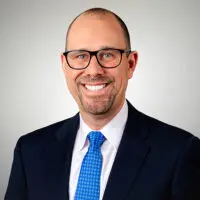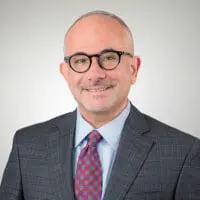Publication
Department of Justice Announces Groundbreaking Whistleblower Program in its Ongoing Effort to Incentivize Voluntary Self Disclosures
By James P. Melendres, Aloke Chakravarty, Joseph G. Adams, Brett W. Johnson, and Brenna Fisher
Department of Justice (DOJ) Deputy Attorney General Lisa Monaco announced that the DOJ is adopting a whistleblower incentive program today at the American Bar Association’s 39th National Institute on White Collar Crime. In announcing the program, Monaco likened these efforts to “the days of ‘Wanted’ posters across the Old West,” noting that law enforcement has traditionally benefitted by offering rewards for tips and information. The DOJ expects the program to incentivize individuals who might not otherwise come forward to report corporate misconduct to the government. As Monaco stated, “The premise is simple: if an individual helps DOJ discover significant corporate or financial misconduct — otherwise unknown to [the Department] — then the individual could qualify to receive a portion of the resulting forfeiture.” As such, all companies – but, especially those that are heavily regulated – should consider what actions may be necessary to defend against whistleblower complaints.
According to Monaco, existing whistleblower programs utilized by the Securities and Exchange Commission (SEC), the Commodity Futures Trading Commission (CFTC), the Financial Crimes Enforcement Network (FinCen), and the Internal Revenue Service (IRS) have a limited scope and are often unable to “address the full range of corporate and financial misconduct.” The DOJ’s program is intended to fill the gaps that still exist in federal agency efforts to patrol and investigate corporate misconduct. Monaco explained that these incentives relatively mirror whistleblower programs that exist to support the False Claims Act and that are already offered by the SEC, CFTC, FinCen, IRS, and others, which allow whistleblowers to take a share of monetary penalties collected by the government.
By implementing this program, the DOJ is hoping to receive reports regarding:
- Criminal abuses of the United States’ financial system;
- Foreign corruption cases, including Foreign Corrupt Practices Act (FCPA) violations and Foreign Extortion Prevention Act (FEPA) violations; and
- Domestic corruption cases, especially those that involve illegal corporate payments to government officials.
Importantly, however, these categories are not exclusive. Monaco encouraged any potential whistleblowers to come forward if they have knowledge of federal law violations.
This announcement is the most recent step in the DOJ’s policy efforts designed to encourage companies to voluntarily disclose violations of federal criminal law. Monaco emphasized the importance of being “first in the door” when reporting under the whistleblower program, which she expects will incentivize companies to voluntarily disclose before whistleblowers can report potential misconduct. In that same vein, she hopes this will incentivize insider individuals to come forward quickly when they learn of corporate misconduct.
Kicking off a “90-day sprint to develop and implement a pilot program,” DOJ Acting Assistant Attorney General Nicole Argentieri is expected to unveil additional information regarding the new whistleblower program on Friday, March 8th. But Monaco did offer some “basic guardrails” for the program:
- Whistleblowers can expect payment only after any victims have been properly compensated;
- Rewards are available only to those who submit true information not already known by the government;
- Whistleblowers who participated in the criminal activity are also exempt from compensation under the program; and
- Whistleblowers may not receive payment from the DOJ if other financial disclosure incentives exist, including qui tam actions or incentives under a different agency’s whistleblower program.
Monaco expects that this program will produce more evidence for stronger white-collar criminal prosecutions, impose more significant penalties on deserving wrongdoers, and assist in prosecuting large-scale misconduct. Monaco ended her remarks by stating that the DOJ’s message is clear: “knock on our door before we knock on yours.”
The new policy reiterates and builds upon other whistleblower programs. Companies should monitor additional information the DOJ provides about the whistleblower pilot program and will need to consider this additional factor in assessing any potential voluntary self-disclosure. Furthermore, companies should evaluate existing “hotline” programs that allow concerned stakeholders to report any potential issues internally. Companies may also take this opportunity to review existing policies and procedures related to government regulatory (or government contracting) compliance to ensure that the never-ending changes to regulations are internally implemented. Further, companies should consider highlighting the DOJ notice in trainings, while also considering outside audits of existing programs to evaluate the status of actual compliance. In the event of a potential violation, companies should consider investigations by outside counsel, rather than internal or non-lawyer consultant reviews to ensure the protection of privileges under the attorney-client privilege.
Read Monaco’s full announcement on the DOJ’s website, here.
About Snell & Wilmer
Founded in 1938, Snell & Wilmer is a full-service business law firm with more than 500 attorneys practicing in 17 locations throughout the United States and in Mexico, including Los Angeles, Orange County, Palo Alto and San Diego, California; Phoenix and Tucson, Arizona; Denver, Colorado; Washington, D.C.; Boise, Idaho; Las Vegas and Reno, Nevada; Albuquerque, New Mexico; Portland, Oregon; Dallas, Texas; Salt Lake City, Utah; Seattle, Washington; and Los Cabos, Mexico. The firm represents clients ranging from large, publicly traded corporations to small businesses, individuals and entrepreneurs. For more information, visit swlaw.com.





